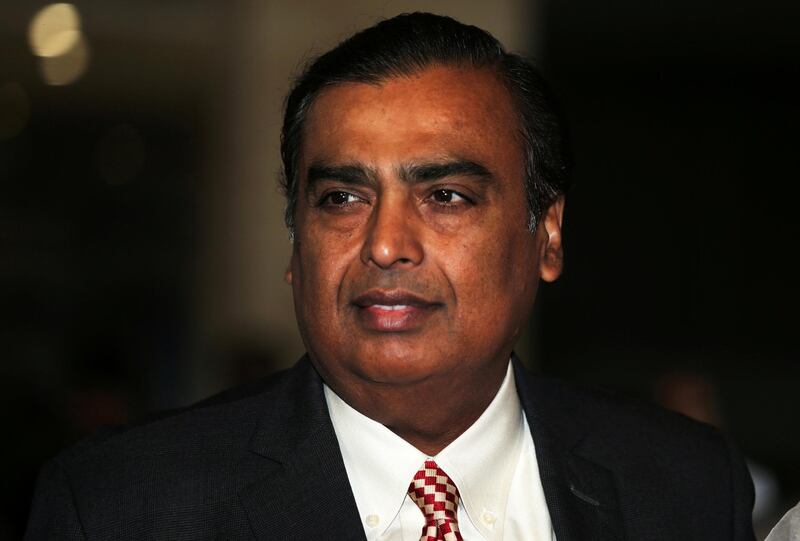Reliance Industries started testing its online shopping portal, moving a step closer to billionaire Mukesh Ambani’s goal of setting up a digital platform to take on e-commerce giant Amazon in India.
JioMart, open to select customers who preregister, promises more than 50,000 grocery products, free home delivery and a return policy that asks no questions. Labelled "the nation’s new store", it is currently available in only three neighbourhoods surrounding Mumbai, according to the website.
The pilot site provides an early glimpse of how the energy-and-petrochemicals conglomerate controlled by Asia’s richest man is stepping up consumer offerings in a pivot towards newer businesses. With the unveiling of the portal, Reliance Industries will join the battle with Amazon and Walmart’s Flipkart Online Services for a slice of an e-commerce market that KPMG says is set to grow to $200 billion (Dh734.5bn) by 2027.
Mr Ambani, 62, is giving shape to his online retail ambitions by spending billions of dollars on a string of small acquisitions. The newer businesses, including telecoms and retail, are likely to contribute 50 per cent of Reliance Industries’ earnings in a few years, from about 32 per cent now, he said in August.
A spokesman for Mumbai-based Reliance Industries declined to provide further details on the retail project.
Mr Ambani’s previous project, which needed almost $50bn of capital expenditure, is already showing signs of success.
Reliance Jio Infocomm, the group’s wireless carrier started in 2016, is India’s biggest operator today and has more than 350 million users. The company entered the world’s second-largest market by subscribers with free calls and cheap data, forcing some incumbents to exit or merge with rivals.
Mr Ambani is seeking to replicate that success in online retail as well. Terming it “new commerce”, the tycoon said in August that his goal is to “completely transform” India’s unorganised retail market — mostly family-run stores — which account for 90 per cent of the nation’s industry.
“This tech-enabled partnership will link producers, traders, small merchants, consumer brands and consumers,” Mr Ambani told shareholders in August. After beta trials with thousands of merchants across the country showed promise, “we are now getting ready to roll out the platform at a larger scale”, he said.
Reliance Industries has unveiled a sweeping plan to create a $24bn digital-services holding firm, and also vowed listings of the new businesses within five years.
Betting the plan would unlock value, investors have piled on Reliance Industries shares, sending the stock soaring 36 per cent this year against the 15 per cent advance by the benchmark index. The gains helped Mr Ambani add more than $15bn to his wealth and taking his net worth to almost $60bn, according to the Bloomberg Billionaires Index.







